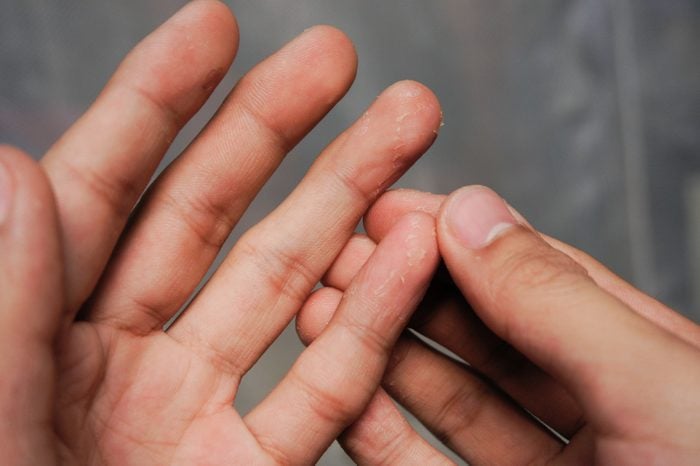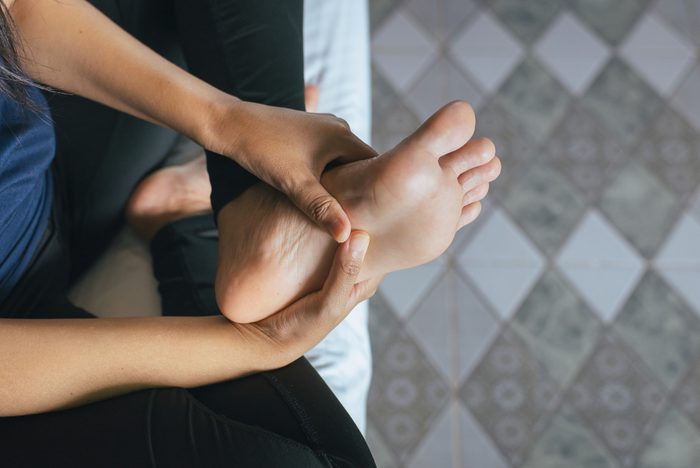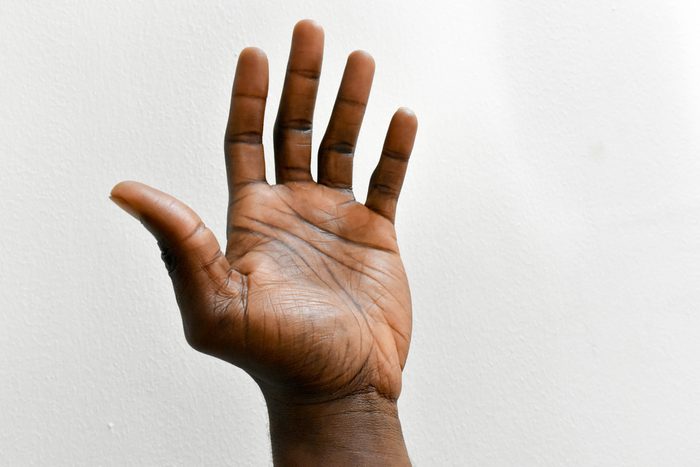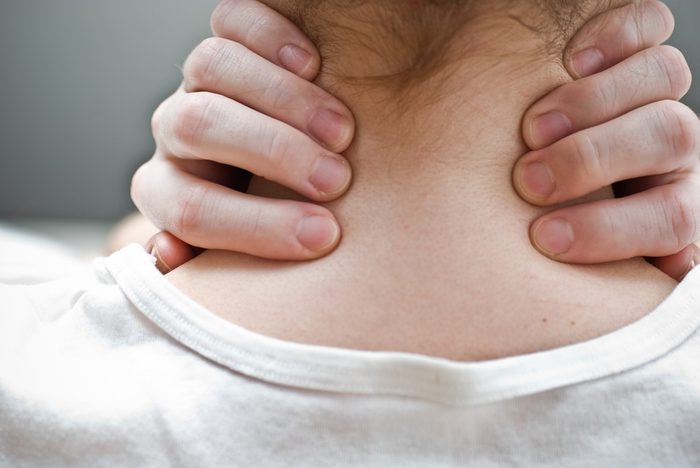
Pinched nerve symptoms
A pinched nerve isn’t a true medical term. It’s used to describe an injury to nerves that have been compressed, constricted, or stretched in some way. It’s often linked to pain in the neck or lower back. A pinched nerve might cause a “pins and needles” feeling or sharp pain. Here, doctors explain the signs and symptoms of a pinched nerve to look out for—and when you should see your doctor.

You have numbness
Numbness is one of the initial pinched nerve symptoms, according to Barbara Bergin, MD, a board-certified orthopedic surgeon. Untreated numbness could result in permanent nerve damage, so Dr. Bergin urges patients experiencing this symptom not to “work through it” in the hopes that it will get better by itself. “If it goes away, great,” Dr. Bergin says. “But if it doesn’t, then seek consultation with your primary care doctor or an orthopedic surgeon.” Anthony Giuffrida, MD, adds that most patients ignore numbness at first, but in some cases, they might not notice it at all.

Or you have tingling
Similarly, tingling or a “pins and needles” feeling is a common sign of a pinched nerve, according to Allen S. Chen, MD, a physiatrist at UCLA Health. “Usually, [numbness and tingling] follow a distinct pattern based on which nerve is pinched,” Dr. Chen says. “Symptoms from pinched nerves tend to be constant, and affect the same area.” So pain that moves around or switches from side to side is less likely due to a pinched nerve, says Dr. Chen.

You have shooting or radiating pain
One of the most common and obvious symptoms of a pinched nerve is pain. Nerve pain radiates and travels across more than one joint to other body parts, according to Dr. Giuffrida. Pain radiating from the buttocks might go across the knee and into the calf due to a pinched nerve since no bones or tendons go across all those areas, Dr. Bergin says.
In comparison, pain associated with a degenerated disc, a herniated disc, or a pulled muscle will stay localized in one main area, Dr. Giuffrida notes. That said, herniated discs could cause pinched nerves, according to Dr. Chen. “These disc bulges or herniations, depending on where they are, can then put pressure on the nerve roots as they traverse through the canal,” he says. And this could cause radiating pain down the arm or leg. (Here’s how a woman with a herniated disc used mind-body exercises to heal.)

You have weakness
Arm, hand, leg, or foot weakness are other pinched nerve symptoms stemming from long-term nerve pressure. Dr. Chen says that weakness could be a sign of a more severe pinched nerve; he recommends seeking medical attention if this occurs. (These are the signs your muscle pain is something worse.)

You have these very rare symptoms in addition to the more common ones
Some uncommon pinched nerve symptoms are related to severe nerve or spinal cord pinching that could lead to various neurological issues. Examples include the loss of bowel or bladder control, balance issues, or numbness in the genitals or rectum, according to Dr. Chen. If any of these rare symptoms occur, Dr. Chen warns people should seek immediate medical attention.
Next, check out the secrets pain doctors won’t tell you.

